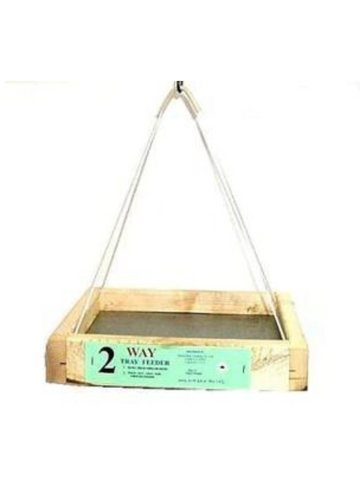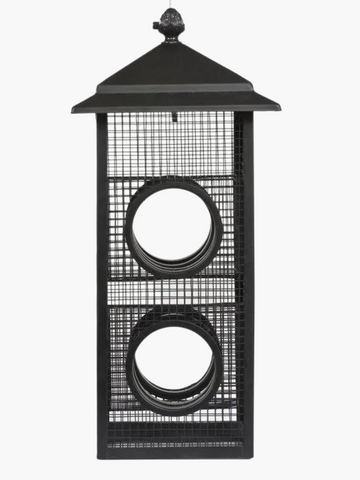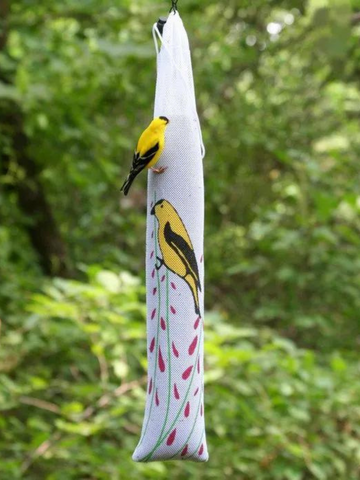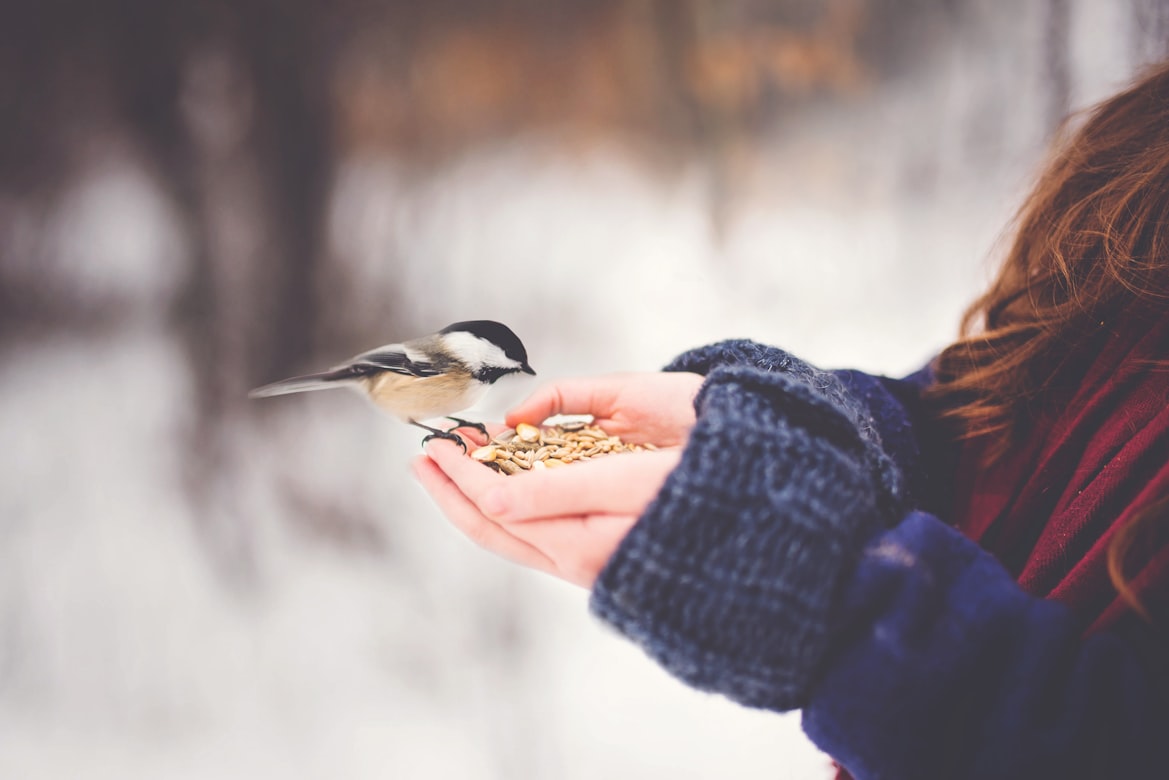Offer
Provide additional details about the offer you're running.
Provide additional details about the offer you're running.
Provide additional details about the offer you're running.
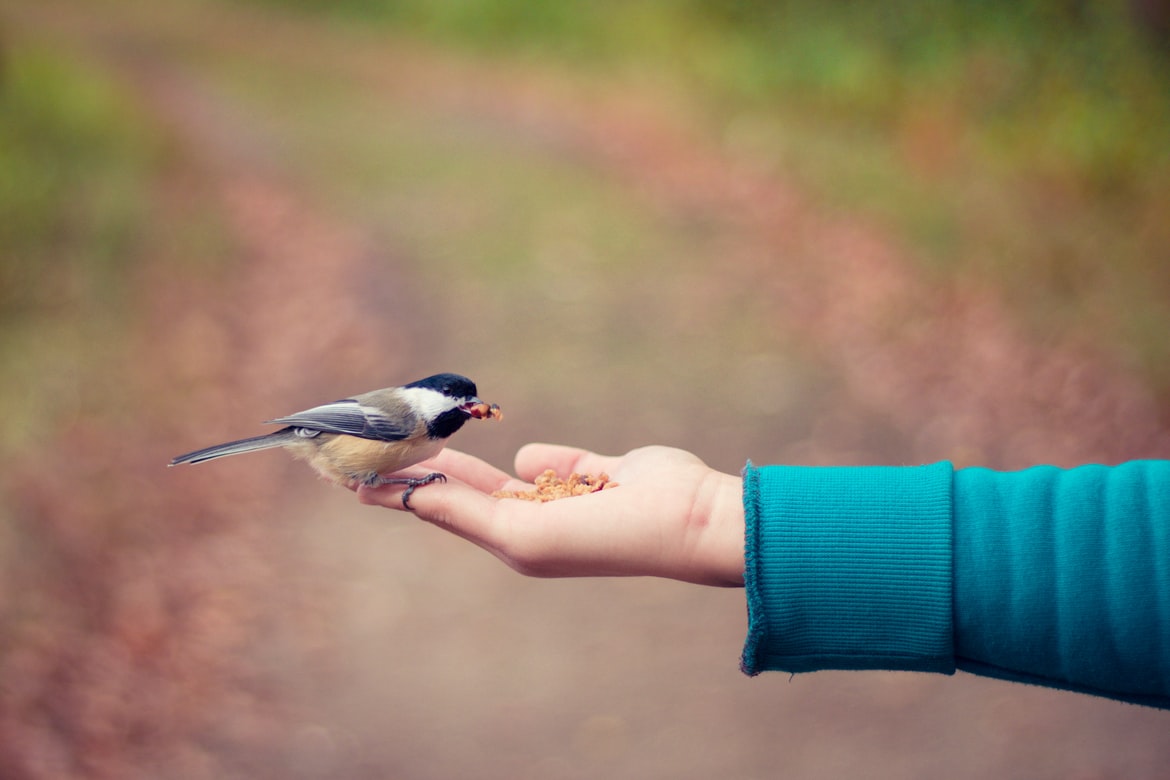
So you've decided to take the dive into backyard birding - an excellent decision, if we do say so ourselves! You probably already chose a feeder, set up a pole system, and read your first birding book. But now you're left wondering:
For new and experienced birders alike, the sheer amount of birdseed available can be overwhelming! The possibilities are limitless! Luckily when choosing birdseed, you can narrow down your choices and easily find the perfect birdseed for your backyard by asking yourself a few simple questions.
As a new (or even experienced) birder looking at the countless seed options available, it can sometimes be tempting to simply pick the cheapest choice and call it a day! While we totally understand the impulse, we strongly recommend taking the time to understand the difference between high-grade and low-grade seed, and why it’s better for you (and the birds) to go for higher quality seed.

Although low-grade seed can appear cheaper on the shelf, it ultimately costs you more in the long run! That’s primarily because these seeds tend to be filled with fillers like wheat or milo, which birds won’t typically eat. Due to poor storage, poor quality seed often contains mould as well. It’s common to find dust, oil, insects, foreign objects, or unusable seed in low-grade seed bags, all of which can be used to bulk up the weight of the seed bags, but none of which will actually be consumed by your backyard birds.
So, although it might seem cost-effective at the time, buying cheap seed ends up costing you far more for cost vs usable seed in the long run.

Unlike bigger chain stores that might have a mix of low and high-grade seed with no easy way to differentiate between the two, Gilligallou takes out all the guesswork by only providing the highest quality seed available on the market! We’re committed to providing birds seed that they won’t only enjoy, but that will be good for their health as well. Every seed blend and bird food product in the shop is seed that we’d happily provide in our very own feeders.
High-quality birdseed means seed that’s free of dust, mould, or any fillers that add weight to your bag but are useless as actual bird feed. Plus, these top-quality seeds are created with fresh and specifically selected ingredients, designed through years of research to appeal to the exact birds in your location for the proper season.
This question should (hopefully) be a relatively easy one to answer, but has a big impact! Not only do different kinds of birds settle in urban or country environments, but the needs of those birds are different as well, especially depending on the season.

Seasons urban has been created with established neighbourhoods and new developments in mind, and is the most nutritionally perfect formula made for city birds in the world.
Seasons Urban is also adjusted every season to best suit the needs of birds during that time. That means high protein in the summer to help with migration and breeding, and high carbohydrates in the winter to keep birds warm. Migration is also considered when creating this blend, so it’s formulated to accommodate birds that should be in Ontario urban areas during that particular season.
This seed has been blended to appeal to all kinds of different birds, making it a great all-around choice for your backyard.

Woodland birds generally use more energy in their daily lives than their urban counterparts, and so require higher levels of carbohydrates and proteins to support them. This blend has been specifically formulated for exactly that! Like its urban counterpart, it's adjusted seasonally to best suit birds’ needs and has enough variety in it to appeal to all kinds of different birds.
The type of feeder you've chosen is going to inform the best seed that's suited for that feeder. Although some feeders can accommodate just about any type of seed, others only take specific types.
Tray and platform feeders are awesome because they can feed both perching and ground-feeding birds, and can be filled with basically any kind of seed you'd like! However, we recommend taking advantage of the possibilities of tray feeders and filling them with birdseed that can't be provided in tube-style feeders — like peanuts! Peanuts will attract bluejays, chickadees, and even woodpeckers to your yard. If you'd like, you could also consider using a tray feeder to offer mealworm to your backyard birds.
These mesh style bird feeders are great at attracting perching and clinging birds, allowing them to eat seed from a variety of different angles! However, because of its design, these style of feeders can only accommodate seed that's not too big, and not too small. Black oil sunflower seed is just right! Black oil sunflower seed is one of the most attractive seeds for a wide variety of birds. This particular black oil sunflower seed has been picked for its high kernel content, which helps to promote revisit rates to your feeder. All the seeds are only taken from the newest crop available, guaranteeing freshness.
This one is a bit obvious, but if you've got a feeder that's specifically designed for nyjer or thistle seed, you're going to want to use that! Nyjer seed can be a bit on the pricier side, which is why there are specific feeders designed to waste as little seed as possible! Finches (particularly goldfinches) and chickadees are particular fans of nyjer. As a bonus - nyjer seed is one of the few kinds of seeds that squirrels don't particularly care for!
Not all birds will eat all kinds of seed - in fact, some can be particularly picky! Although some of us are happy to have any bird that flies by, others might like the chance to attract a few specific birds to our backyards!
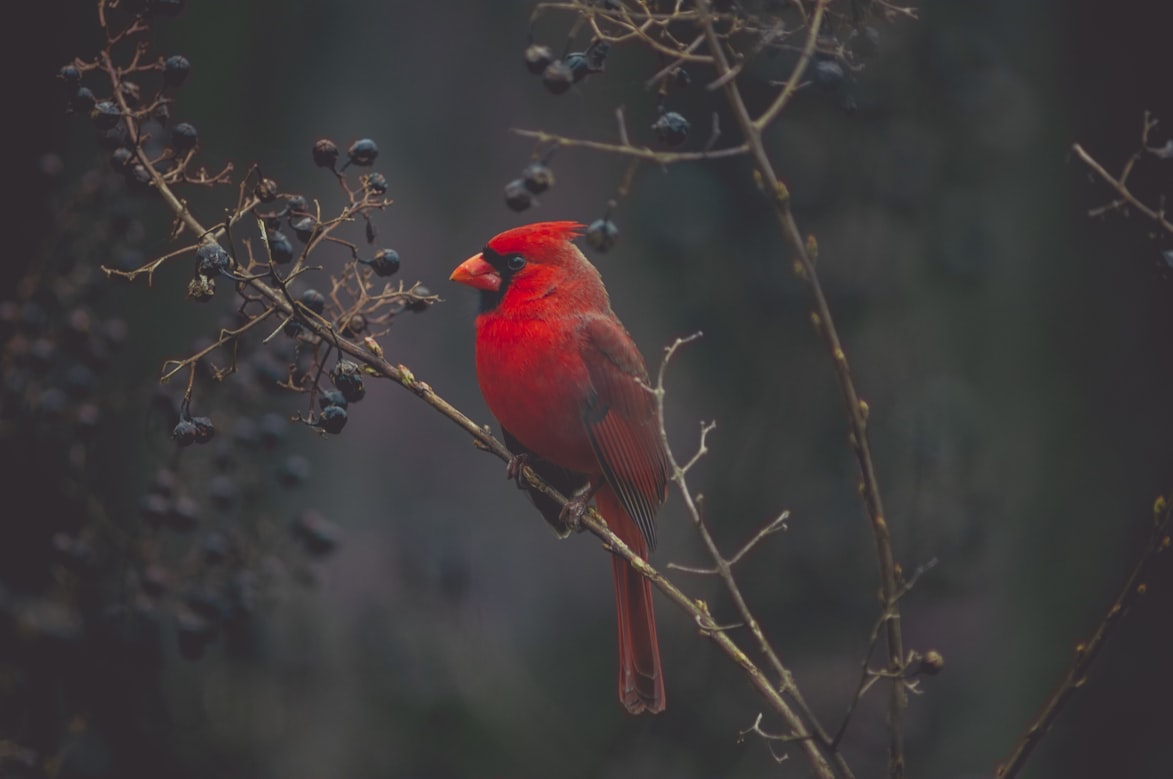
Cardinals are a favourite of ours (so much so that we made one our logo!), but they can be elusive, preferring not to get too close to humans if they can help it. However, with the right feeder and seed, you can attract them to your backyard. Our cardinal blend is a simple mix of black oil sunflower and safflower, a cardinal's favourite! For best results, use a platform feeder that's close to the ground, and don’t let the feeder go empty, as cardinals tend to feed in routine patterns.
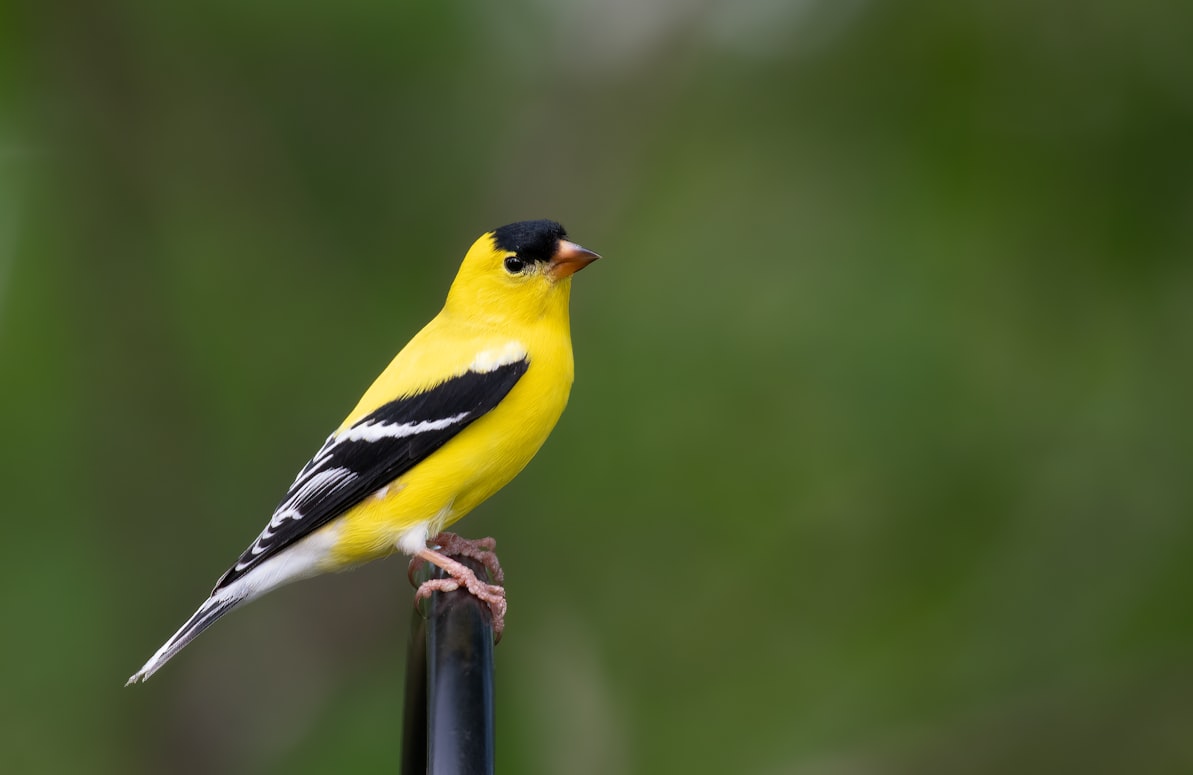
Wild finches can be particular about their food, which is why you'll want a blend designed specifically to attract and satisfy them with Nyjer (thistle) and fine sunflower chips, and does not include porso millets which are generally more attractive to ground feeders like mourning doves and house sparrows! Additionally, the size of the seed in this blend allows the seed to freely flow through the small portholes of all finch feeders.

Okay you caught us, mealworm is obviously not a seed. However, we wanted to include it in the list because if you're on the lookout for the birds mentioned above, then mealworms are your best bet! Plenty of other birds, like cardinals and woodpeckers, will also happily partake in mealworms! As an added benefit, mealworm is high in protein, fat, and potassium which birds need to maintain energy, especially during colder months. Dried Mealworms are 100% natural, packed full of protein, vitamins, and high-grade edible oils. Mealworm is a high-quality, high-energy treat that will be a welcome addition to your wild bird's diet!
Of course, if you're unsure which birdseed would be right for you, you can always shoot us a message and we'd be happy to help you choose the perfect blend!
You can also check out our YouTube video, all about the same topic:
For weekly birding info like this, make sure you subscribe to our newsletter, and please share with your friends if you found this info useful.
Author — Sophie Gervais
High Quality Blend
